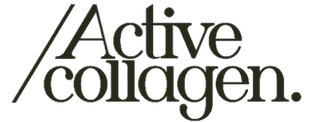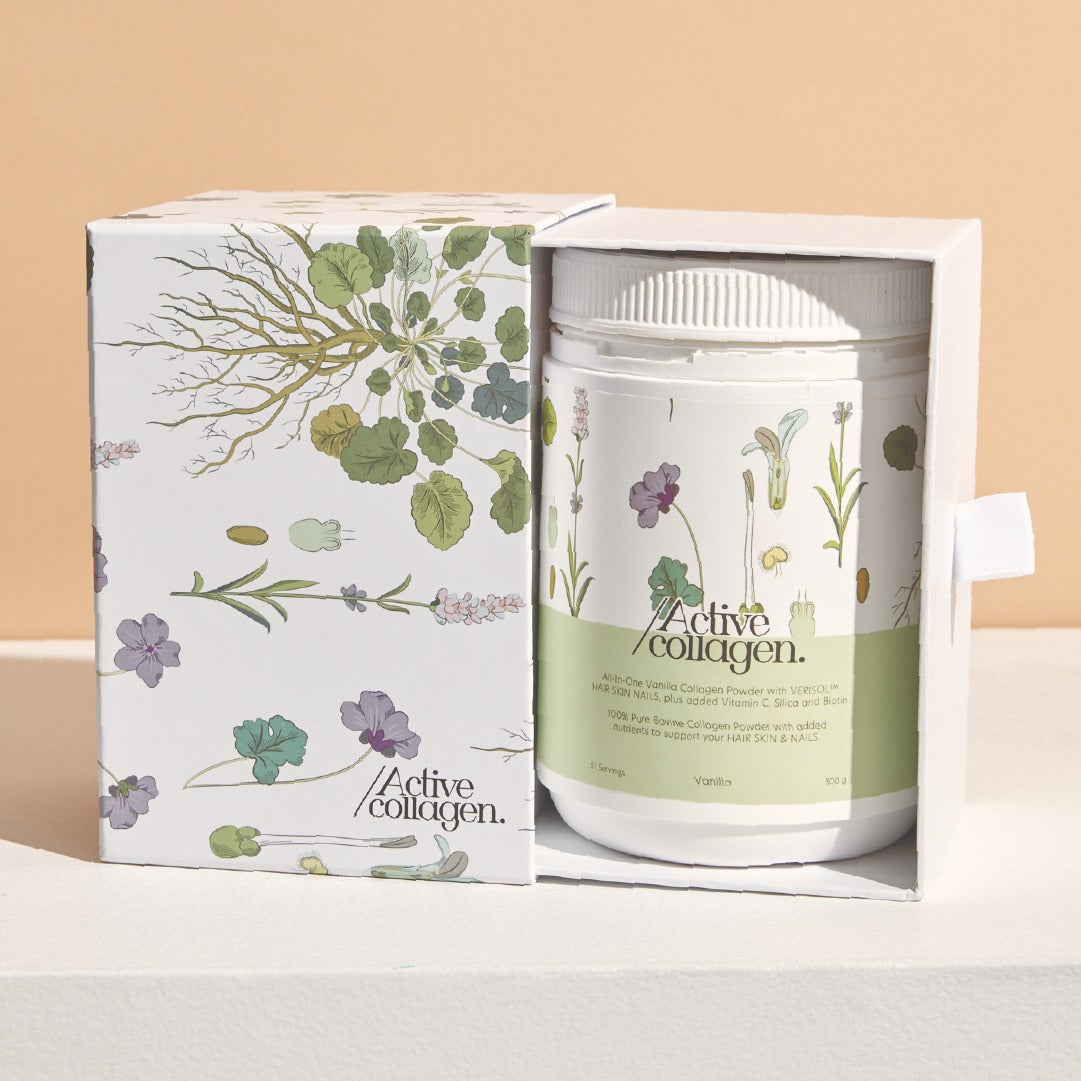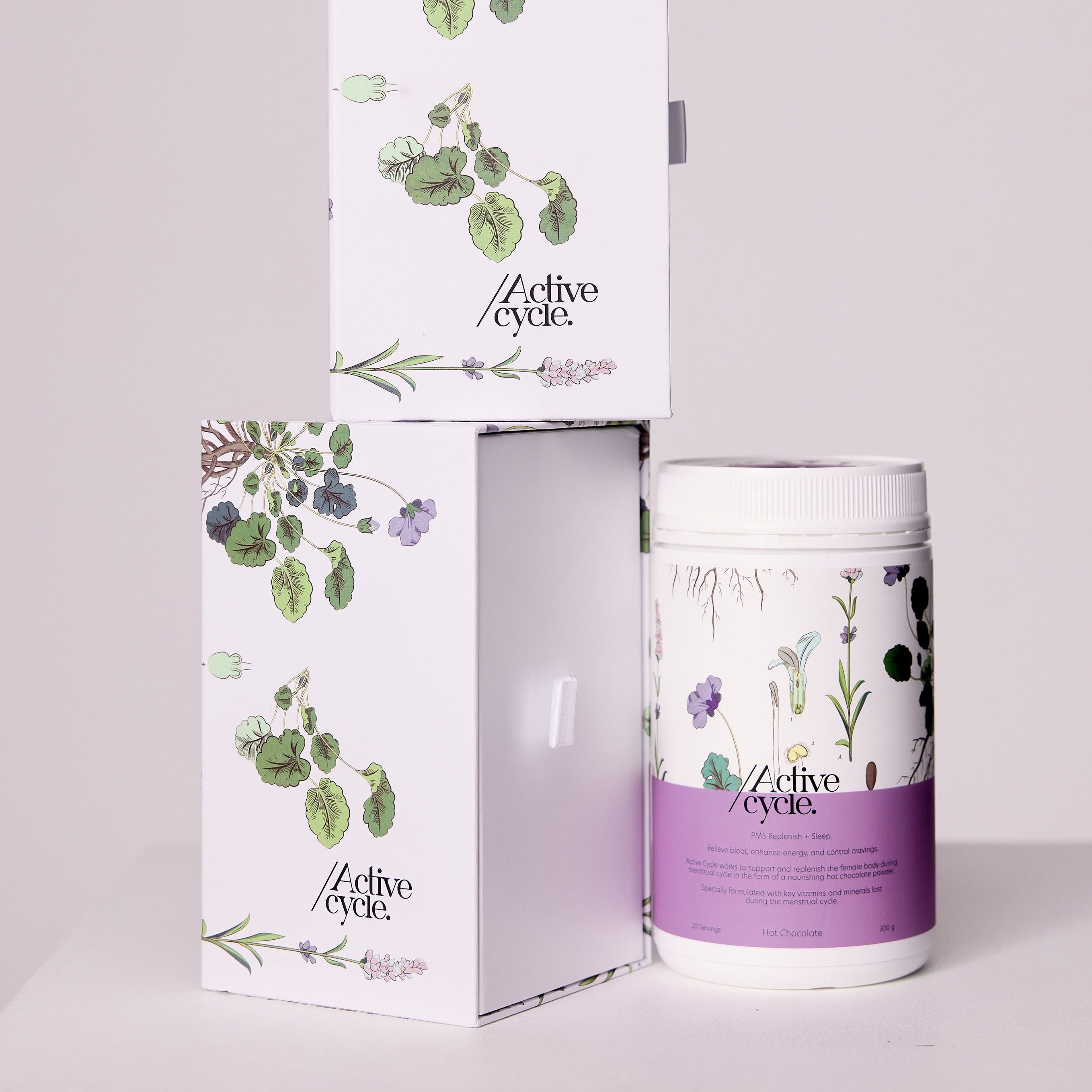Our bodies are rich in collagen protein as it makes up most of the connective tissues such as our skin, tendons and bones, and is important for the health of our gut, hair and nails. Although this protein may be found in ample amounts throughout the body, as we age our ability to maintain ample amounts declines. And as a result we notice the signs of aging – wrinkles, sagging and dry skin. So, it really is no wonder that there are such loud conversations regarding collagen supplementation in the health and wellness space and its positive effects on aging.
However, supplementing with collagen may not be for everyone. The majority of collagen supplements, like hydrolyzed collagen, are derived from either marine or bovine sources, which isn’t so good news for those that follow a vegan or vegetarian diet. Although supplementing is one of the best ways you can boost your collagen production, there are also a plethora of ways to ensure your body’s ability to synthesise collagen is boosted naturally.
So, vegans and vegetarians listen up! We won’t let you be left out of this one. Follow on to learn the key nutrients you can prioritise in your diet to preserve and increase collagen levels.
Amino Acids
Collagen is a type of protein and proteins are made up of many smaller proteins - amino acids - linked together in a chain. Eating enough protein and protein containing the 3 most important amino acids – lysine, glycine, proline – will help build collagen.
Out of these three amino acids glycine (Gly) is the most abundant in collagen, making up one third. Lysine (Lys) and proline (Pro) make up around 20% and the rest (X) are other amino acids. To put it visually, a collagen peptide or chain may look like this Gly-Pro-X-Gly-X-Lys-Gly-X…..
Both glycine and proline are non-essential amino acids, meaning our bodies can synthesise them independently, whereas lysine is essential and must be consumed in the diet. Although, it is still optimal to be getting all three through diet to enhance levels and avoid deficiency.
Vegan Amino Acid sources: when considering sources of amino acids it is just as easy to ensure you are incorporating enough protein in your diet. Plant-based proteins include legumes (soy, lentils, chickpeas, beans), nuts (cashews, pistachios), seeds (hemp seeds, pumpkin seeds, sunflower seeds) and wholegrains (oats, quinoa).
Vitamin C
We can’t stress enough how important vitamin C is for collagen production. It is absolutely vital, and without it the body essentially can’t make collagen.
Vitamin C is a cofactor for 2 enzymes – prolyl hydroxylase and lysyl hydroxylase – which are needed for the proper structure, formation and folding of the collagen protein. And not only is it necessary for building collagen it is also necessary for preventing collagen loss as it acts as a powerful antioxidant for decreasing inflammation and oxidative stress. This can be seen in our skin; vitamin C levels are usually high which stimulates collagen synthesis and defends against UV damage. Which is why getting enough vitamin C is also beneficial for skin health in general.
Vitamin C sources: luckily most sources of vitamin C are from plants. These include citrus, berries, tomatoes, kiwi fruit, capsicum, potato and brassica vegetables like broccoli and Brussels sprouts.
Zinc
Zinc is an essential trace element that is necessary for a number of fundamental roles such as immunity, wound healing, acting as an antioxidant, anti-inflammatory and regeneration of cell linings. Studies on zinc have shown that low levels and deficiencies are associated with a reduction in collagen synthesis. This is due to zincs role in collagen metabolism, protection from UV induced damage in the skin and its ability to stimulate collagen synthesis in bone formation.
Signs of zinc deficiency include hair loss, impaired immunity, skin rashes, brittle nails and slowed wound healing. Unfortunately, vegetarian and vegan diets are usually lower in bioavailable zinc, as food components such as phytates in fibre rich foods like whole cereals, legumes and nuts hinder zincs absorption. However, one secret to reducing the phytate content of these foods is to soak, ferment or grind items such as legumes before consumption to increase zinc bioavailability.
Zinc sources: soy products such as tofu, whole grains, oats, brown rice, nuts and pumpkin seeds.
Silicon
Definitely an element that isn’t talked about much, silicon is key for collagen. Silicon is found mostly in our skin, hair, bones and nails, and is one of the most abundant trace elements in the body.
In our skin, silicon is needed for hydroxylase enzyme activation to build collagen proteins and optimise synthesis, which increases skin strength and elasticity. Silicon’s role in bone health is also super significant. Research on silicon’s role in bone health have shown that low levels (less than 1-2g in the body) and deprivation of silicon decreases collagen synthesis and bone mineral content along with increasing collagen breakdown. We don’t think about silicon much, but it definitely has an impact on collagen synthesis and preventing bone disorders such as osteoporosis.
Silicon sources: silicon is actually found more abundantly in plant sources than animal sources. This is due to a majority of the silicon coming from soil and organic material particles. Sources include unrefined cereals – especially whole oats -, rice, green beans, spinach, coriander, lentils and soy.
So, no need to get major FOMO over not being able to reap the benefits of a collagen supplement. Plant-based eaters can support collagen production through consuming a wholefood nutrient dense diet with a little extra focus on the above key players.
de Paz-Lugo, P., Lupiáñez, J. A., & Meléndez-Hevia, E. (2018). High glycine concentration increases collagen synthesis by articular chondrocytes in vitro: acute glycine deficiency could be an important cause of osteoarthritis. Amino acids, 50(10), 1357–1365. https://doi.org/10.1007/s00726-018-2611-x
Albaugh, V. L., Mukherjee, K., & Barbul, A. (2017). Proline Precursors and Collagen Synthesis: Biochemical Challenges of Nutrient Supplementation and Wound Healing. The Journal of nutrition, 147(11), 2011–2017. https://doi.org/10.3945/jn.117.256404
DePhillipo, N. N., Aman, Z. S., Kennedy, M. I., Begley, J. P., Moatshe, G., & LaPrade, R. F. (2018). Efficacy of Vitamin C Supplementation on Collagen Synthesis and Oxidative Stress After Musculoskeletal Injuries: A Systematic Review. Orthopaedic journal of sports medicine, 6(10), 2325967118804544. https://doi.org/10.1177/2325967118804544
Pullar, J. M., Carr, A. C., & Vissers, M. C. M. (2017). The Roles of Vitamin C in Skin Health. Nutrients, 9(8), 866. https://doi.org/10.3390/nu9080866
Suzuki, M., Ramezanpour, M., Cooksley, C., Lee, T. J., Jeong, B., Kao, S., Suzuki, T., Psaltis, A. J., Nakamaru, Y., Homma, A., Wormald, P. J., & Vreugde, S. (2020). Zinc-depletion associates with tissue eosinophilia and collagen depletion in chronic rhinosinusitis. Rhinology, 58(5), 451–459. https://doi.org/10.4193/Rhin19.383
Michalak, M., Pierzak, M., Kręcisz, B., & Suliga, E. (2021). Bioactive Compounds for Skin Health: A Review. Nutrients, 13(1), 203. https://doi.org/10.3390/nu13010203
Grüngreiff, K., Gottstein, T., & Reinhold, D. (2020). Zinc Deficiency-An Independent Risk Factor in the Pathogenesis of Haemorrhagic Stroke?. Nutrients, 12(11), 3548. https://doi.org/10.3390/nu12113548
Araújo, L. A., Addor, F., & Campos, P. M. (2016). Use of silicon for skin and hair care: an approach of chemical forms available and efficacy. Anais brasileiros de dermatologia, 91(3), 331–335. https://doi.org/10.1590/abd1806-4841.20163986
Jugdaohsingh R. (2007). Silicon and bone health. The journal of nutrition, health & aging, 11(2), 99–110. https://pubmed.ncbi.nlm.nih.gov/17435952/




